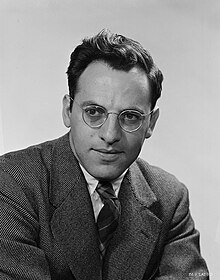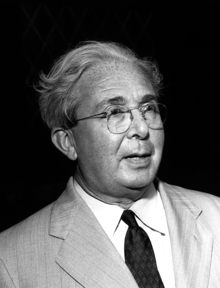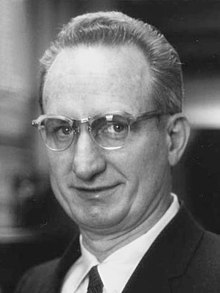Portal:Physics
The Physics Portal


Physics is the scientific study of matter, its fundamental constituents, its motion and behavior through space and time, and the related entities of energy and force. Physics is one of the most fundamental scientific disciplines. A scientist who specializes in the field of physics is called a physicist.
Physics is one of the oldest academic disciplines. Over much of the past two millennia, physics, chemistry, biology, and certain branches of mathematics were a part of natural philosophy, but during the Scientific Revolution in the 17th century, these natural sciences branched into separate research endeavors. Physics intersects with many interdisciplinary areas of research, such as biophysics and quantum chemistry, and the boundaries of physics are not rigidly defined. New ideas in physics often explain the fundamental mechanisms studied by other sciences and suggest new avenues of research in these and other academic disciplines such as mathematics and philosophy.
Advances in physics often enable new technologies. For example, advances in the understanding of electromagnetism, solid-state physics, and nuclear physics led directly to the development of technologies that have transformed modern society, such as television, computers, domestic appliances, and nuclear weapons; advances in thermodynamics led to the development of industrialization; and advances in mechanics inspired the development of calculus. (Full article...)

A supernova (pl.: supernovae or supernovas) is a powerful and luminous explosion of a star. A supernova occurs during the last evolutionary stages of a massive star, or when a white dwarf is triggered into runaway nuclear fusion. The original object, called the progenitor, either collapses to a neutron star or black hole, or is completely destroyed to form a diffuse nebula. The peak optical luminosity of a supernova can be comparable to that of an entire galaxy before fading over several weeks or months.
The last supernova directly observed in the Milky Way was Kepler's Supernova in 1604, appearing not long after Tycho's Supernova in 1572, both of which were visible to the naked eye. The remnants of more recent supernovae have been found, and observations of supernovae in other galaxies suggest they occur in the Milky Way on average about three times every century. A supernova in the Milky Way would almost certainly be observable through modern astronomical telescopes. The most recent naked-eye supernova was SN 1987A, which was the explosion of a blue supergiant star in the Large Magellanic Cloud, a satellite galaxy of the Milky Way. (Full article...)
Did you know -
- ... that nuclear fusion reactions are probably occurring at or above the sun's photosphere; it is a process called solar surface fusion.
- ... that the submarine telescope ANTARES, intended to detect neutrinos, may also be used to observe bioluminescent plankton and fish?
- ... that a touch flash releases about a billion photons a second far less than produced in a particle accelerator?
Selected image -

A ferrofluid is a liquid which becomes strongly polarised in the presence of a magnetic field. Ferrofluids are composed of nanoscale ferromagnetic particles suspended in a carrier fluid, usually an organic solvent or water. The ferromagnetic nano-particles are coated with a surfactant to prevent their agglomeration (due to van der Waals and magnetic forces). Although the name may suggest otherwise, ferrofluids do not display ferromagnetism, since they do not retain magnetisation in the absence of an externally applied field. In fact, ferrofluids display paramagnetism, and are often referred as being "superparamagnetic" due to their large magnetic susceptibility. True ferromagnetic fluids are difficult to create at present.
Related portals
January anniversaries
1 January
- 1894 - Satyendra Nath Bose's birthday.
- 1801 - Giuseppe Piazzi is the first to notice the dwarf planet Ceres. However, very soon astronomers lose sight of its orbital path. After some months, Giuseppe Piazzi finally calculates its correct position on December 31.
- 1985 - Ernie Wise, a comedian, places the first mobile phone call in the UK.
2 January
- 2 January 1822 - Rudolf Clausius was born.
8 January
- 8 January 1942 - Stephen Hawking was born, on the same day that Galileo Galilei died in 1642.
15 January
- 15 January 1908 - Edward Teller was born.
General images
Categories

Fundamentals: Concepts in physics | Constants | Physical quantities | Units of measure | Mass | Length | Time | Space | Energy | Matter | Force | Gravity | Electricity | Magnetism | Waves
Basic physics: Mechanics | Electromagnetism | Statistical mechanics | Thermodynamics | Quantum mechanics | Theory of relativity | Optics | Acoustics
Specific fields: Acoustics | Astrophysics | Atomic physics | Molecular physics | Optical physics | Computational physics | Condensed matter physics | Nuclear physics | Particle physics | Plasma physics
Tools: Detectors | Interferometry | Measurement | Radiometry | Spectroscopy | Transducers
Background: Physicists | History of physics | Philosophy of physics | Physics education | Physics journals | Physics organizations
Other: Physics in fiction | Physics lists | Physics software | Physics stubs
Physics topics
Classical physics traditionally includes the fields of mechanics, optics, electricity, magnetism, acoustics and thermodynamics. The term Modern physics is normally used for fields which rely heavily on quantum theory, including quantum mechanics, atomic physics, nuclear physics, particle physics and condensed matter physics. General and special relativity are usually considered to be part of modern physics as well.
More recognized content
Associated Wikimedia
The following Wikimedia Foundation sister projects provide more on this subject:
-
Commons
Free media repository -
Wikibooks
Free textbooks and manuals -
Wikidata
Free knowledge base -
Wikinews
Free-content news -
Wikiquote
Collection of quotations -
Wikisource
Free-content library -
Wikiversity
Free learning tools -
Wikivoyage
Free travel guide -
Wiktionary
Dictionary and thesaurus
Sources
Portals on Wikipedia















































































